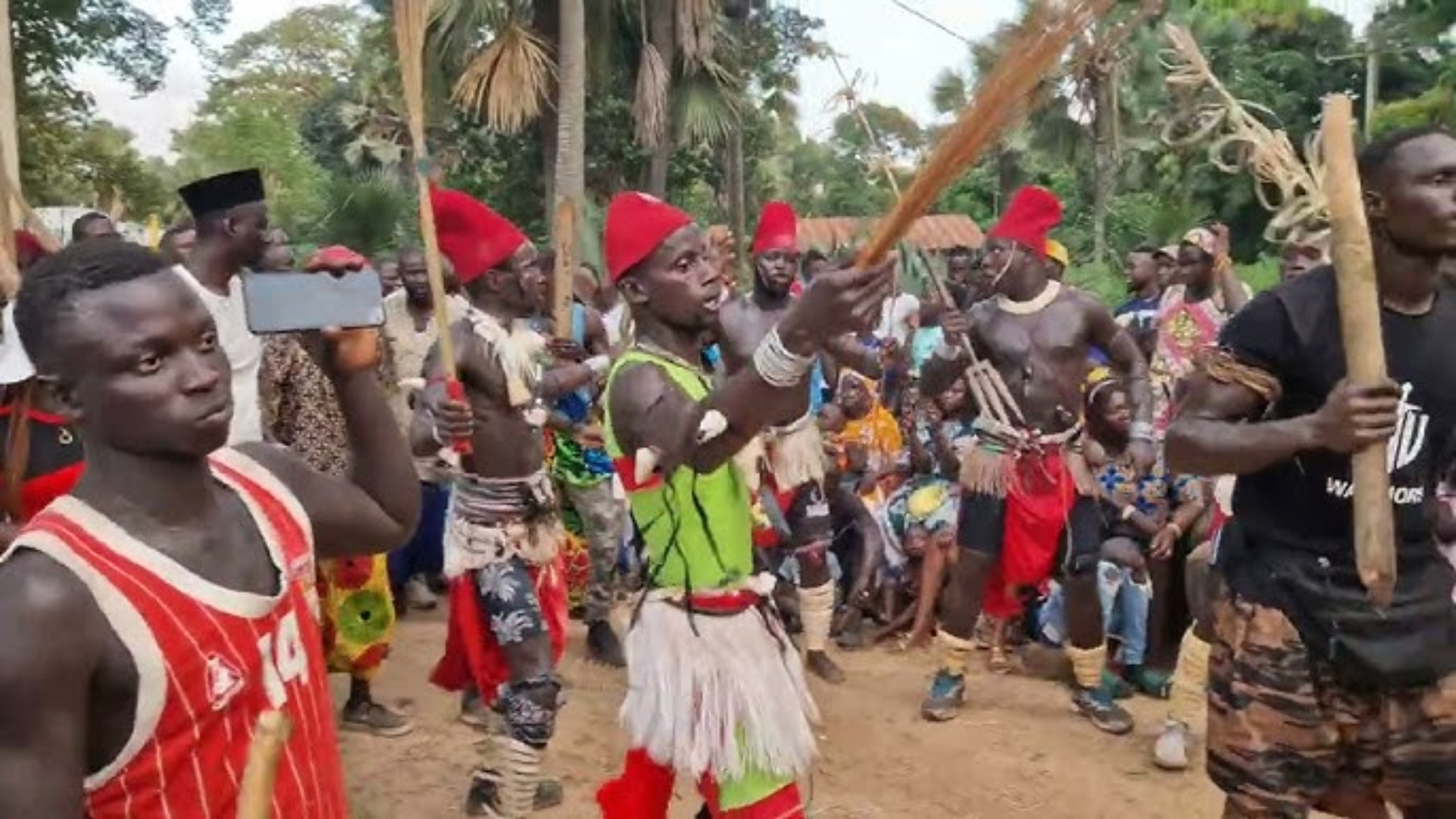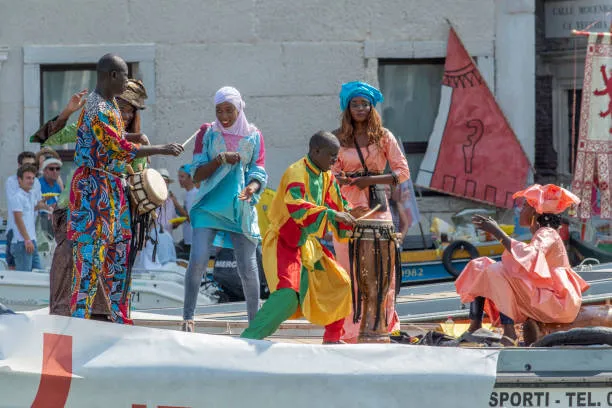Nestled in the verdant landscapes of West Africa are the Diola and Bassari communities, each with a rich tapestry of cultural heritage. Central to their traditions are the sacred woods, revered spaces that intertwine nature with spirituality. This exploration delves into the profound significance these sacred woods hold for the Diolas and Bassaris, offering a glimpse into their mystical and historical world.
The Diolas, primarily inhabiting the Casamance region of Senegal, and the Bassaris, spread across parts of Senegal, Guinea, and Guinea-Bissau, share a common reverence for these sacred groves. These woods are not mere clusters of trees but are steeped in spiritual beliefs, serving as a bridge between the earthly and the ethereal. Here, the communities connect with their ancestors, perform rituals, and uphold their cultural identity.
Understanding the role of sacred woods in these communities offers insight into their worldview and traditions. It reveals how nature and spirituality are deeply intertwined in African cultures, particularly among the Diolas and Bassaris. Their sacred woods are a testament to the enduring power of ancestral wisdom and the respect for the natural world.
Historical Background
The sacred woods have been an integral part of Diola and Bassari cultures for centuries. These woods are more than just physical spaces; they are spiritual sanctuaries where generations have congregated to commune with the spirits. Historically, these areas were seen as gateways to the spiritual realm, inhabited by ancestral spirits and deities, and were central to the community’s spiritual life.

The history of these sacred groves is rich and multifaceted, deeply embedded in the oral traditions and folklore of both the Diolas and Bassaris. Elders pass down stories and rituals associated with these woods, preserving the knowledge and practices that define their cultural identity. This transmission of knowledge has helped maintain the sanctity and significance of the sacred woods through generations.
In these communities, the sacred woods are not just historical relics but living, breathing aspects of their cultural heritage. They are reminders of a time when the natural world and the spiritual realm were seamlessly intertwined, a concept that continues to be relevant in their cultural practices today.
Cultural Significance
For both the Diolas and Bassaris, sacred woods are integral to their cultural identity. These areas are venues for community gatherings, where important decisions are made, and rituals are performed. The woods serve as communal sanctuaries, reinforcing social bonds and shared beliefs.

The Diolas and Bassaris perform various rituals in these sacred woods, from initiation ceremonies to seasonal festivals. These ceremonies are imbued with deep symbolic meaning and are essential for maintaining the cultural fabric of the community. The rituals often involve music, dance, and storytelling, creating a rich tapestry of cultural expression.
These sacred groves also serve as places of learning and teaching. Here, the young are introduced to the traditions and values of their community, ensuring the continuation of cultural practices. The woods are not just places of worship but also spaces where cultural identity is affirmed and celebrated.
Spiritual Beliefs
The spiritual beliefs of the Diolas and Bassaris are intricately linked to their sacred woods. These groves are seen as living entities, where the spirits of ancestors and natural deities reside. They are spaces where the physical and spiritual worlds converge, allowing for communication with the spiritual realm.
In Diola and Bassari cultures, the sacred woods are revered as sources of wisdom and guidance. Community members visit these woods to seek blessings, make offerings, and perform rituals that are believed to bring protection and prosperity. The respect and reverence for these woods underscore the deep spiritual connection these communities have with nature.
The preservation of these sacred woods is not just an environmental concern but also a spiritual one. For the Diolas and Bassaris, the degradation of these woods is tantamount to losing a part of their spiritual heritage. Thus, they are protected with great care, ensuring that the sanctity and purity of these spaces are maintained for future generations.
Sacred Woods in Diola Culture
The Diolas have a unique relationship with their sacred woods, viewing them as central to their community and spiritual life. These woods are the setting for many of their cultural and spiritual activities, from community meetings to ancestral worship. The woods are more than mere locations; they are embodiments of their history and spirituality.

In these sacred spaces, the Diolas conduct various rituals and ceremonies. These range from rites of passage for young members of the community to agricultural rituals seeking blessings for bountiful harvests. The practices performed in these woods are shrouded in secrecy and are central to maintaining the spiritual balance within the community.
The sacred woods are also places of solace and reflection for the Diolas. Here, they connect with their ancestors, seeking guidance and wisdom. The tranquility and sanctity of these woods provide a space for meditation and spiritual rejuvenation, making them invaluable to the Diola community.
Contemporary Relevance
In an age where modernization and globalization are pervasive, the sacred woods of the Diolas and Bassaris stand as bastions of traditional values and beliefs. These woods are not relics of the past but active, living components of these communities’ cultural identity. They serve as reminders of the enduring connection between humans and nature, a concept increasingly relevant in today’s world.

The challenge for these communities is to balance the preservation of their sacred woods and traditions with the demands of modern life. As younger generations move towards urban areas and are influenced by global cultures, there is a risk that these ancient practices may fade. However, there is also an opportunity to reinvigorate these traditions by integrating them into the broader narrative of cultural preservation and environmental stewardship.
Efforts to maintain the relevance of sacred woods in the Diolas and Bassaris communities are crucial. These efforts not only preserve an important aspect of their cultural heritage but also foster a greater understanding and appreciation of indigenous beliefs and practices. In a world seeking sustainable ways to coexist with nature, the sacred woods offer valuable lessons in harmony and respect for the natural world.
Conservation and Protection
The conservation and protection of the sacred woods are of paramount importance to both the Diolas and Bassaris. These woods are not only cultural and spiritual treasures but also vital ecosystems. They are home to diverse flora and fauna, making them important biodiversity hotspots.
Local and international conservation efforts focus on protecting these woods from deforestation, encroachment, and environmental degradation. These initiatives often involve collaborations between community leaders, environmentalists, and government agencies, aiming to find sustainable ways to preserve these sacred spaces.
For the Diolas and Bassaris, the conservation of their sacred woods is a matter of cultural survival. They are actively involved in these efforts, employing traditional knowledge and practices to manage and protect these areas. Their participation ensures that conservation strategies are culturally sensitive and effective, preserving these woods for future generations.
Personal Narratives
The stories of individuals from the Diola and Bassari communities bring to life the profound impact of sacred woods on their lives. An elder Diola recounts his experiences in the sacred grove, where he feels a deep connection with his ancestors. His narrative is filled with respect and reverence for these woods, highlighting their spiritual significance.

A young Bassari woman shares her story of initiation in the sacred wood, a transformative experience that deepened her understanding of her culture and heritage. Her journey underscores the importance of these rites in maintaining the cultural fabric of the Bassari community.
These personal narratives offer a glimpse into the intimate relationship between the and their sacred woods. They reveal the woods’ role in shaping individual and communal identities, underscoring their importance in the lives of these communities.
Conclusion
The sacred woods of the Diolas and Bassaris are more than mere forests; they are the heart of these communities’ cultural and spiritual life. Understanding and respecting these sacred spaces is crucial in appreciating the rich heritage of the Diolas and Bassaris. As we navigate a rapidly changing world, the lessons from these woods in living harmoniously with nature and honoring our traditions are invaluable.
For those interested in experiencing the rich culture and traditions of Senegal firsthand, consider exploring with Senegal Shuttle. Offering safe, reliable, and culturally immersive tours, Senegal Shuttle provides an opportunity to connect with the local communities, learn about their heritage, and witness the beauty of the sacred woods. Embark on a journey with Senegal Shuttle and immerse yourself in the vibrant culture of Senegal, where the sacred woods of the Diolas and Bassaris continue to thrive












Leave a Comment